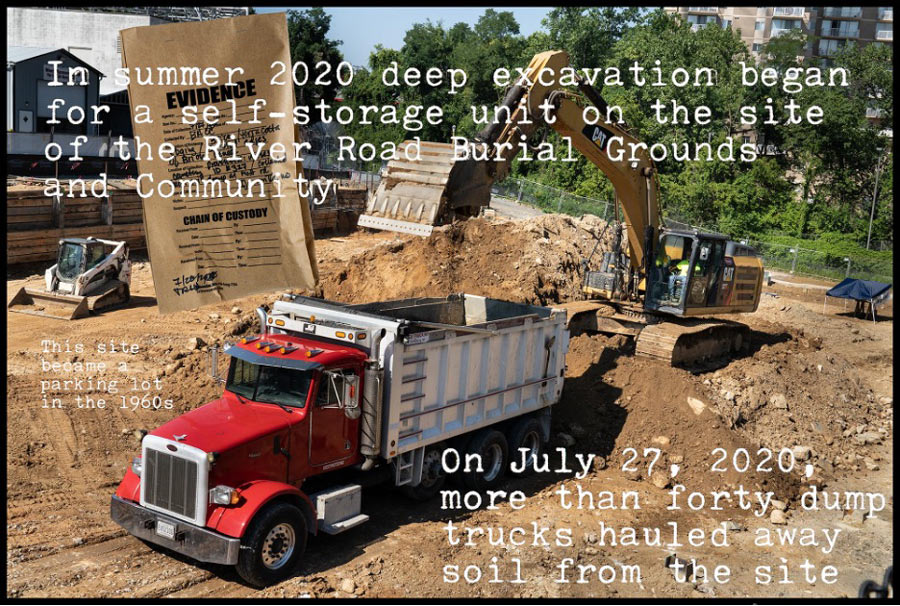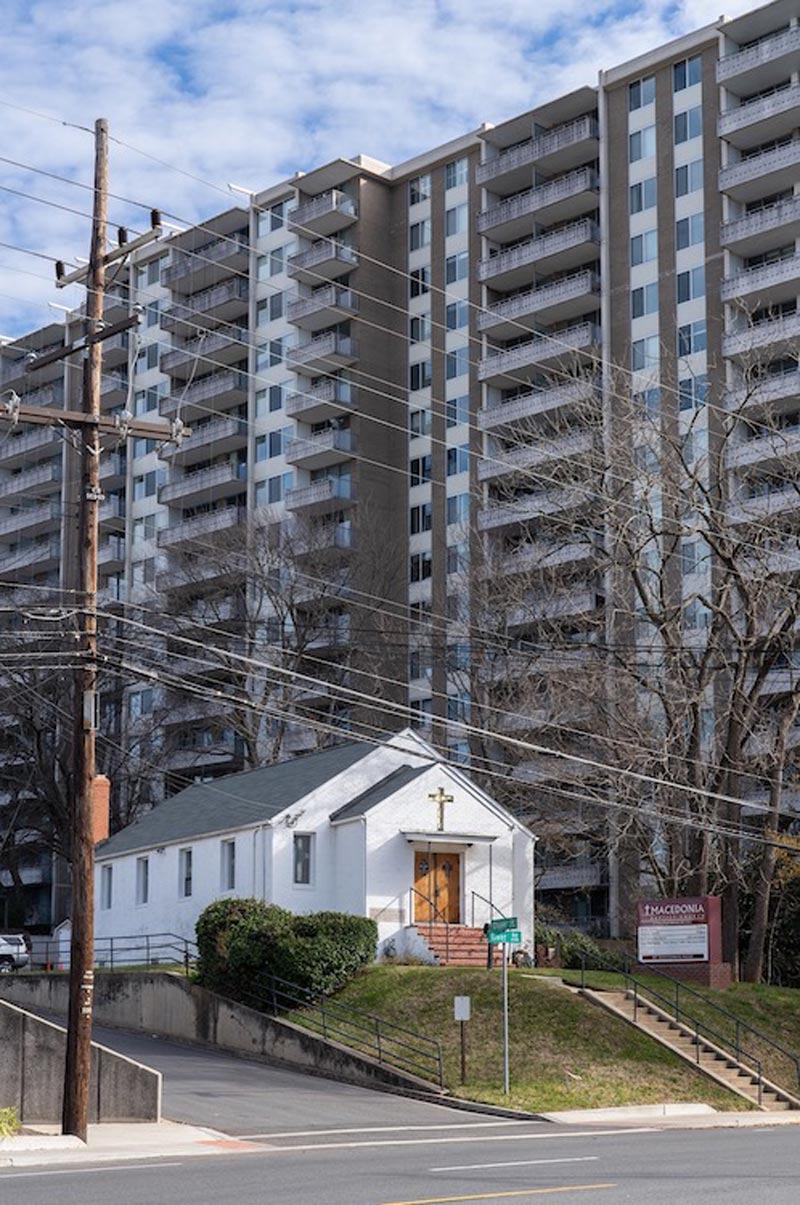“The Bridge That Carried Us Over” Opens at AU Museum
 From River Road African/African American Burial Grounds 2020. Photocollage by Gail Rebhan.
From River Road African/African American Burial Grounds 2020. Photocollage by Gail Rebhan.
Visitors to The Bridge That Carried Us Over exhibition, which opened last weekend at the American University Museum Project Space, will get an in-depth look at one historic African/African American community in southern Maryland — the River Road community — and learn how parishioners and local activists are fighting to preserve, protect, and memorialize the burial ground at the Macedonia Baptist Church, located just two miles from the American University campus.
 Macedonia Baptist Church, 5119 River Road, Bethesda, Maryland, November 29, 2019. Photo by Gail Rebhan.
Macedonia Baptist Church, 5119 River Road, Bethesda, Maryland, November 29, 2019. Photo by Gail Rebhan.
“Inspired by American University’s strategic plan, our museum seeks to strengthen its ties and foster partnerships here in its own neighborhood from Tenleytown out along River Road,” says Jack Rasmussen, director and curator of American University Museum at the Katzen Arts Center. “There is a rich and at times disturbing history here, and The Bridge That Carried Us Over addresses the issues it uncovers in a visually compelling way.”
The exhibit explores the mechanisms by which the transfer of intergenerational wealth, land, and historical memory have been denied to the African diaspora in the United States. It examines the historic Black River Road community, which thrived from emancipation through its violent displacement in the mid-twentieth century. The exhibition combines archival images and research — on neighborhood slaveholding estates, the free River Road community, and the Bethesda African Cemetery Coalition’s ongoing struggle to protect the community’s desecrated burial ground — with community heirlooms, firsthand oral histories, and funerary objects rescued from the Moses African Cemetery.
In presenting the community’s rich history in juxtaposition with the powerful forces trying to erase it over the course of centuries, the exhibition aims to elucidate one instance of the systemic structural denial of communal wealth (in all its forms) to Black people in the United States, and to provide concrete, place-based, and community-led proposals for reparations.
A Church, A Burial Ground, A Community
 Cabin on the Solyom Estate occupied by Botts family members, July 1895. Photo courtesy of Ralph Wooden.
Cabin on the Solyom Estate occupied by Botts family members, July 1895. Photo courtesy of Ralph Wooden.
The exhibition picks up where the 2019 AU Museum exhibition, Plans to Prosper You, left off. Visitors will see contemporary and archival photographs from the River Road community, listening stations and videos of sermons and speeches, original works of art including photo collages by artist Gail Rebhan juxtaposing the past and present, and many artifacts. Items from the Macedonia Baptist Church include a c. 1920s church bench, a choir gown, and a c. 1940s bible and hymnal. The exhibit also includes artifacts recovered from the desecrated burial ground: glass, a Coke bottle, an African American hair pick, broken plates, and a jar of dirt. More recent items reflect the activism surrounding the church, such as protest placards and tee shirts.
The Bridge That Carried Us Over exhibition is sponsored by the Bethesda African Cemetery Coalition and the Macedonia Baptist Church. Please visit the AU Museum website for visiting information.
